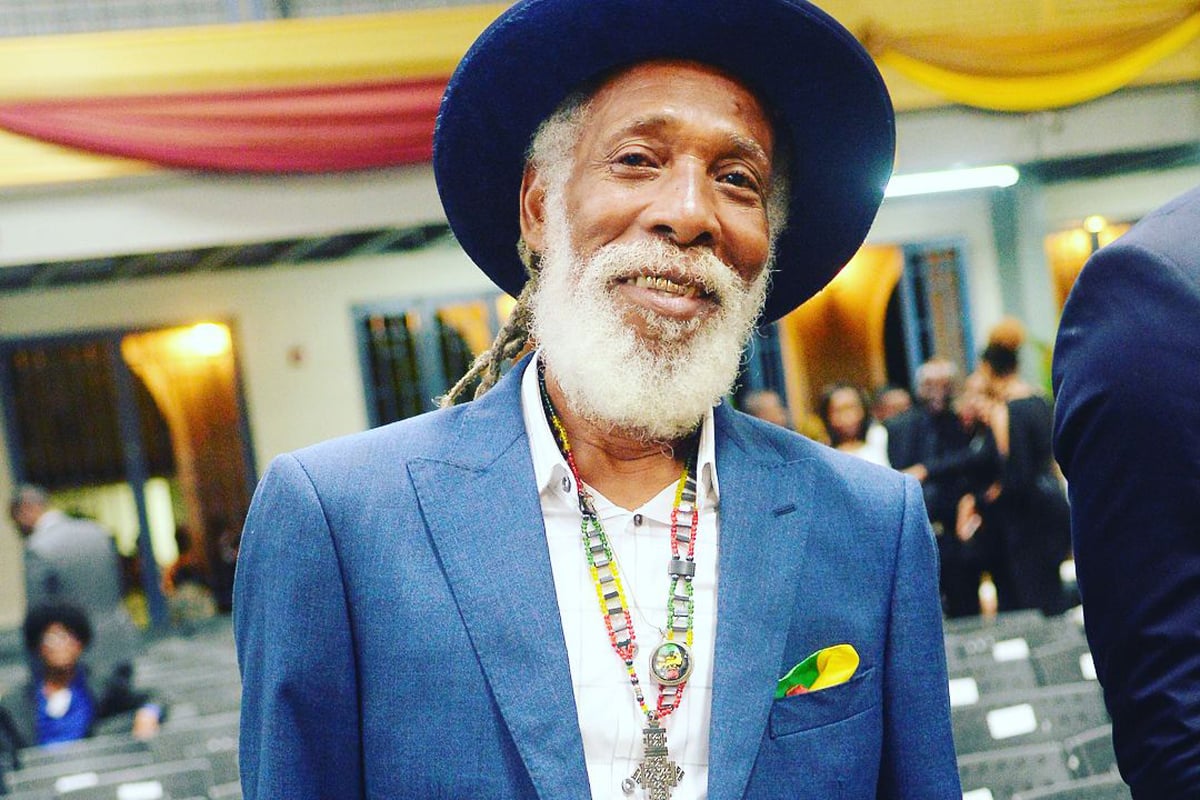Big Youth Had To Behave Like A “Real Badman” To Get Paid By Producer For ‘S-90 Skank’ Hit

Vintage Dancehall icon Big Youth says he had to behave like a “real bad man” in order to get whatever artist royalties were due to him for record sales of his 1972 mega hit S-90 Skank .
Speaking during an interview with Television Jamaica’s Anthony Miller on The Entertainment Report which was aired on Friday night, Big Youth first gave the genesis of the song which made number one on national charts, and later ascended him to a life of wealth.
“Mi used to ride dem bike up an dung hard enuh and have a lot a crash. An I go to press 100 record dung a Federal and on my way back with dis 100 record when a reach Industrial Terrace, on Spanish Town Road, a car coming from down deh lick off me an Jahdi from di bike. An di next week I come up with seh ‘man if you ride like lightning yuh crash like thunder’, the Rastafarian said.
It was when Miller told Big Youth that “S-90 Skank may have brought fame, but what about the fortune” during the interview which was filmed at the corner of Orange and Princess Streets in the heart of Downtown Kingston, that the 72-year-old retold the tale of how he finally got his just reward of $1300 from the producer, the late Keith Hudson, which to him, was a massive sum at the time.
“1300 hundred dollas. Caw mi nuh know bout di business… him gi mi 1300. Dem time deh 1300 dolla comin like maybe 13 million now, cause you know di rate a di exchange. An a haffi ‘put up force’ in order to get that,” Big Youth recounted.
“Mi haffi act like a ignorant bad man to get a likkle piece a di food dat is making so much money. (Number) one for so many weeks,” he mused.
The Dread Locks Dread artiste said that years after pursued collection of his publishing, royalties, and other Intellectual Property rights, he was criticized for not letting bygones be bygones, but was not deterred.
“When I finally know that I should register wid dis company and dat company and have my own publishing company; when I start is like dem throw words like is suppm dat from in the 70s. But is my intellectual rights so no matter how long it take is mine,” he stated.
S-90 Skank was Big Youth’s first national number one hit and was also featured in a television commercial for the Honda motorcycle that inspired it. He also released hits such as Screaming Target, Chanting Dread Inna Fine Style and Hit the Road Jack, which made him an international cultural icon.
He received the Order of Distinction in the rank of Officer on National Heroes Day last year, for his more than four decades of contribution to the development of Jamaican music.
The very straightforward Big Youth, was also asked by Miller: “Did you ever in your career have a pay day?” To this question, Big Youth happily responded in the affirmative and provided additional information of how his music made him accumulate wealth at a young age.
“When mi teck Ray Charles ting and seh: ‘I was born in April and christened in May, sure I want to see dat shiny day, so hit the road Jack,” he said.
“So that made you some money?” was Miller’s follow-up question.
“Maan. I gwine give yuh a bigger joke. I did over war song and call it streets in Africa with me and Dennis Brown and di Heptones and those people singing background. And a lot of players in the industry seh: ‘Hrrrr, him caan sing! But Anthony Milla, I coulda move outa idle bird university, a hundred and twelve Princess Street where, when someone walk upstairs d dirt drop pon wi dungstairs…,” he said, noting that despite his success he still hung out with his colleagues there.
“A start to see money now, and I start to produce my own songs,” Big Youth, whose given name is Manley Augustus Buchanan explained.
Miller also asked Big Youth about criticisms made by many about his singing abilities.
“They still say that about you that your vocal range was extremely limited. Did that bother you?” he asked.
“No becaw, dem disrespecting. Becaw greater powers out here acknowledge what we doing. A neva sing a song fi no producer; I sing it fi me, caw yuh cannot dictate to me, the feelings I have,” he said.
Asked what he felt was his “singular contribution” to Jamaican music, Big Youth said it was the embracing and immersion of Rastafari in the genres.
“The spirituality of Rastafari. Is me who open it. Di same song dat we are debating on is the song that open the key to the whole Rasta movements in Rasta music, Reggae music. Anytime you rock the baby and you rock the grandmothers and grandfathers, you are rocking,” he said laughing.
